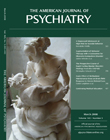Addressing Patient Needs: The Role of Mental Health Literacy
To The Editor: It was with great pleasure that we read the Presidential address of Pedro Ruiz, M.D., and the response by Carolyn B. Robinowitz, M.D., regarding the need to remove barriers to mental health services. We propose that attention to mental health literacy may enhance our ability to achieve this goal.
Mental health literacy encompasses an individual’s knowledge and beliefs about mental illness, and poor mental health literacy often represents a powerful barrier to treatment (1) . Discouragingly, research has shown that most members of the public cannot accurately label common mental disorders (2 , 3) . Low mental health literacy is problematic because inadequate knowledge is associated with delays in treatment seeking, decreased levels of treatment seeking, and utilization of non-optimal treatments (4) . It is also associated with the belief that one should be able to solve emotional problems alone or that such problems will disappear without treatment (5) .
Both Drs. Ruiz and Robinowitz highlighted the large number of mentally ill individuals who do not access care. Increasing mental health literacy is particularly important given that lack of knowledge about mental illness precedes other barriers to treatment (6) . Dr. Robinowitz noted that public disclosure of celebrities with mental illness has reduced stigma, which is a common barrier to treatment. Similarly, building from models of health promotion, public campaigns designed to increase mental health literacy have been associated with positive changes in attitudes toward mental disorders and an increase in help seeking (7) .
Unfortunately, a divide between professional and public knowledge of mental illness remains. Increasing the public’s awareness is one important way to address the challenges discussed in the Presidential address. Further efforts to improve mental health literacy will facilitate the goal of increasing access to humane care for all patients.
1. Jorm AF, Barney LJ, Christensen H, Highet NJ, Kelly CM, Kitchener BA: Research on mental health literacy: what we know and what we still need to know. Aust N Z J Psychiatry 2006; 40:3–5Google Scholar
2. Jorm AF, Korten AE, Jacomb PA, Christensen, H, Rodgers B, Pollitt P: “Mental health literacy”; a survey of the public’s ability to recognise mental disorders and their beliefs about the effectiveness of treatment. Med J Aust 1997; 166:182–186Google Scholar
3. Lauber C, Nordt C, Falcato L, Rössler W: Do people recognise mental illness? factors influencing mental health literacy. Eur Arch Psychiatry Clin Neurosci 2003; 253:248–251Google Scholar
4. Thompson A, Hunt C, Issakidis C: Why wait? reasons for delay and prompts to seek help for mental health problems in an Australian clinical sample. Soc Psychiatry Psychiatr Epidemiol 2004; 39:810–817Google Scholar
5. Wells JE, Robins LN, Bushnell JA, Jarosz D: Perceived barriers to care in St Louis (USA) and Christchurch (NZ): reasons for not seeking professional help for psychological distress. Soc Psychiatry Psychiatr Epidemiol 1994; 29:155–164Google Scholar
6. McGorry P: “Every me and every you”: responding to the hidden challenge of mental illness in Australia. Austr Psychiatry 2005; 13:3–15Google Scholar
7. Paykel ES, Hart D, Priest RG: Changes in public attitudes to depression during the defeat depression campaign. Br J Psychiatry 1998; 173:519–522Google Scholar



